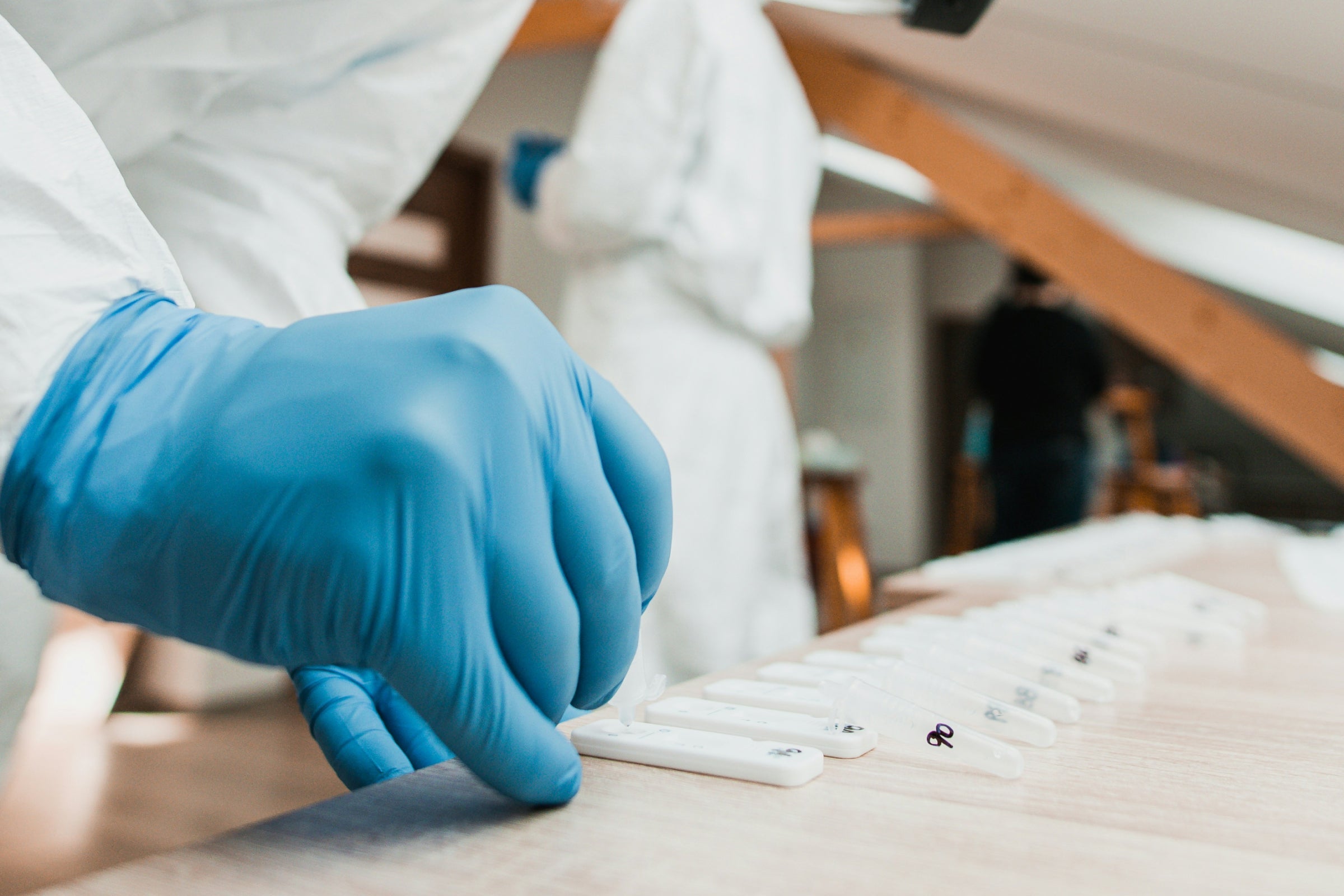
New Phase 2 Clinical in COVID-19 Patients Finds Hydroxychloroquine (HCQ) Plus Nutritional Protocol Including Nicotinamide Riboside Significantly Improved Recovery Time Vs. HCQ Alone
The complete Phase 2 and 3 clinical study results are now published in the peer-reviewed journal Advanced Science. View the updated blog post on the Phase 3 component of the study here.
On the heels of previously published preclinical research investigating the effect of viral infection on NAD+ levels, new clinical research in 93 mild-to-moderate COVID-19 infected patients is now available on the open access preprint publication server medRxiv.org. This Phase 2 study led by Dr. Adil Mardinoglu of ScandiBio Therapeutics, a biotechnology company originating from the Swedish national infrastructure Science for Life Laboratory, was conducted at the Umraniye Teaching and Research Hospital, University of Health Sciences, in Istanbul, Turkey.
In this trial, researchers found a nutritional protocol of the readily available nutrients nicotinamide riboside (NR), L-serine, N-acetyl-L-cysteine (NAC), and L-carnitine tartrate delivered in conjunction with the Turkish standard of care therapy (hydroxychloroquine) significantly shortened recovery time by 29% over standard therapy plus placebo (6.6 days vs. 9.3 days, respectively.)
The Eye of the [Inflammatory] Storm
The findings of this study are consistent with existing preclinical data supporting what we know about NAD+ precursors and related metabolic pathways previously identified as important. Prior to this latest research we understood that upon infection the virus causing COVID-19 (SARS-CoV-2) severely depletes levels of nicotinamide adenine dinucleotide (NAD+) by activating hungry NAD-dependent enzymes, sirtuins and polyadenosine diphosphate-ribose polymerases (PARPs) [1], which can lead to rapid cell demise if not rectified.
When a virus infects cells, specific proteins called NLRP3 inflammasome initiate inflammation leading to the activation of the cell’s antiviral response [2]. Sirtuins and PARPs are upregulated to assist in preventing the virus from hijacking the cell, facilitating cellular repair and regulating the inflammatory response following infection [3-5] .
The combination of supplements delivered in the nutritional protocol, referred to as combined metabolic cofactors supplementation (CMCS), have been evaluated in a pilot clinical study earlier in 2020 for tolerability, safety, and efficacy in supporting mitochondrial function [6]. Based on those pilot results, additional preclinical data on the nutrients, and the surge in global COVID-19 cases, this study kicked off as the first to investigate the effects of CMCS as part of a treatment for COVID-19 infected patients.
L-carnitine and nicotinamide riboside are both important for mitochondrial function, while serine impacts immune cells and N-acetylcysteine helps maintain the levels of the antioxidant, glutathione. Authors hypothesized CMCS may improve clinical outcomes in COVID-19 by regulating energy metabolism and various metabolic pathways for carbohydrates, lipids, and amino acids [7].
Principal study investigator Dr. Mardinoglu was quoted, “This research builds upon a broader understanding of the importance of mitochondrial health in response to metabolic stress. Given the scientific understanding that people with various metabolic conditions have a greater risk of poor outcomes following a COVID-19 diagnosis, it is important to understand the potential benefit of mitochondrial health in aiding patient recovery.”
Data continues to suggest people with pre-existing metabolic conditions such as hypertension, type 2 diabetes, obesity, high triglycerides, and non-alcoholic fatty liver disease (NAFLD) are at higher risk for COVID-19, thus raising concerns about potential interactions between virus pathobiology and elements of metabolic syndrome [8].
Healthy mitochondria are critical for energy production and maintaining cellular oxidative homeostasis. The inflammatory responses observed in several of the aforementioned conditions are closely linked to an increase in oxidative stress leading to mitochondrial dysfunction, which has been implicated in worsened disease progression in COVID-19 [9-11].
Many COVID-19 patients are at risk of severe outcomes attributed to the systemic inflammatory responses described as the “cytokine storm”. This life-threatening condition is dependent upon the downstream process leading to oxidative stress, dysregulation of iron homeostasis, hypercoagulability, and thrombocytopenia [7]. A review of preclinical and clinical studies suggest nutritional supplements may inhibit the production of proinflammatory molecules (e.g., IL6, CCL5, CXCL8, and CXCL10) and improve impaired mitochondrial function by reducing enhanced oxidative damage, lipid peroxidation and disturbed glucose tolerance [12]. Given the role these nutrients play in the immune response, early treatment with CMCS in addition to medical standard of care therapy may be beneficial to reduce the risk leading to severe respiratory distress, and lung damage [7].
Blunting a Viral Attack
The nutrients used in the CMCS blend play a role in various metabolic pathways, one of which being the NAD+ biosynthesis pathway. NAD+ is essential in helping repair DNA damage due to inflammation [13]. It plays a dual role in managing COVID-19 by supporting a strong immune response upon infection, while suppressing an overactive immune system in the later stages.
In the latest randomized, open-label, placebo-controlled, Phase 2 clinical study, 93 patients completed the trial. Patients were administered hydroxychloroquine twice daily for 5 days plus CMCS or placebo given twice daily for 14 days upon confirmed diagnosis.
Trial results demonstrated the combination of CMCS plus hydroxychloroquine significantly reduced recovery time vs. hydroxychloroquine plus placebo. Secondary outcomes also identified improvements in various markers related to liver health – an important finding given individuals with compromised liver function are at higher risk of COVID-19 infection and provided insight into the safety of the treatment.
On the Horizon
These results concluded the combination therapy of hydroxychloroquine plus the existing therapies included in the CMCS are safe and beneficial as a novel approach for the treatment of patients with mild-moderate COVID-19. Dr. Mardinoglu stated, “The insights provided by this data warrant further clinical study of this nutrient protocol in combination with standard of care to reduce recovery time from COVID-19. We look forward to the initiation of a Phase 3 study in the near future.”